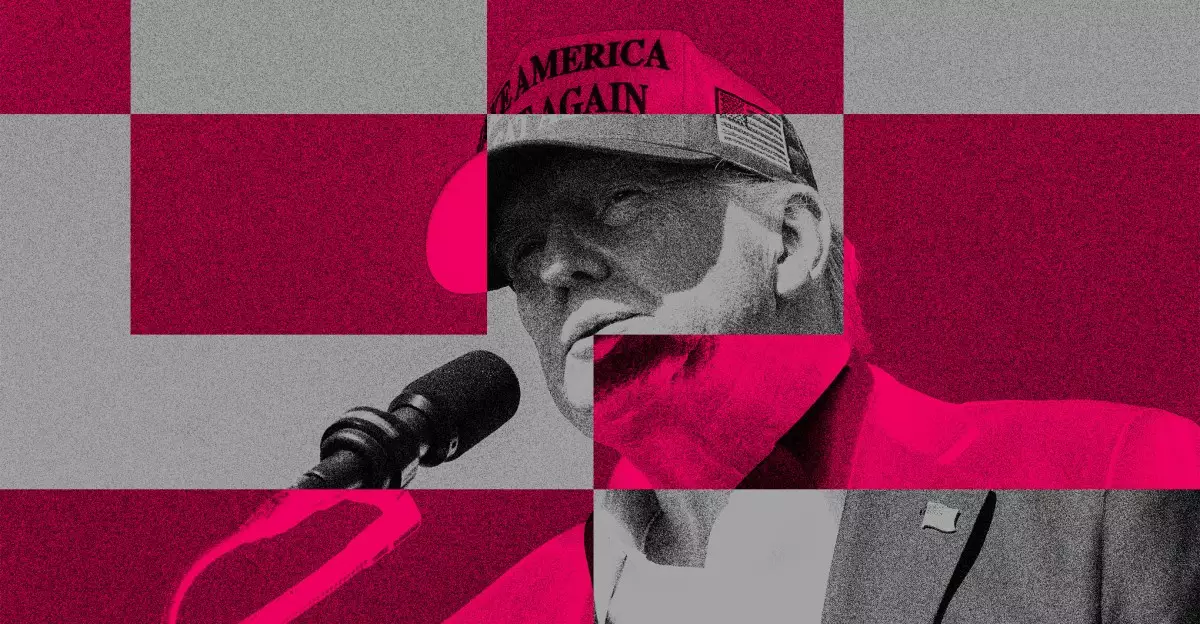In the tumultuous landscape of modern politics, few platforms epitomize both opportunity and peril like TikTok. The Trump administration’s recent maneuver—creating a new official White House account despite the absence of a definitive deal with ByteDance—illuminates a complex paradox. On one hand, the administration aims to project authority and stay relevant in the digital age; on the other, this act underscores the persistent chaos and indecisiveness that characterize its approach to technology regulation. This contradictory stance reveals a broader strategic failure: the failure to reconcile the economic, security, and political dimensions that underpin TikTok’s presence in the US.
Notably, the administration’s decision to launch the @WhiteHouse account hints at a deeper recognition of TikTok’s influence. The platform, far from being a mere entertainment app, has become a battleground of narratives, perceptions, and power dynamics. Yet, this acknowledgment seems superficial, masking an underlying struggle to establish a coherent policy framework. The absence of a formal deal with ByteDance—despite ongoing negotiations and mounting deadlines—suggests an administration oscillating between confrontation and capitulation. Its actions betray a critical uncertainty: is TikTok a threat to national security or a lucrative propaganda tool? The answer remains elusive, and the ad hoc approach exacerbates that ambiguity.
The Contradiction of Ban and Engagement
The history of the TikTok ban illustrates the peculiar contradictions within U.S. political strategy. Initiated by former President Trump in 2020, the effort to ban the platform was rooted in national security concerns and fears of Chinese espionage. Yet, as Trump’s stance evolved and election politics took center stage, the aggressive posture softened. The ban, initially set to be enforced with an executive order, was repeatedly delayed—each postponement revealing more about the underlying politics than security fears.
In a provocative twist, Trump’s campaign integrated TikTok aggressively into its digital playbook, cultivating an audience that rivals and surpasses Democratic efforts. The success of the campaign’s @TeamTrump account, with its staggering engagement metrics, underscores an uncomfortable truth: TikTok has become a vital arena of political influence, even for those pushing to ban it. The platform’s entertainment-centric nature has allowed Trump and his allies to craft viral moments, reframing the narrative to their advantage. The irony is palpable—an administration attempting to regulate or eradicate a platform while simultaneously wielding its power for political gains.
Power, Propaganda, and the Illusion of Control
The creation of government accounts and President Trump’s vocal support for TikTok form a striking contradiction. On one side, officials raise concerns about data privacy, national security, and Chinese influence; on the other, they leverage the platform’s expansive reach for political messaging and image crafting. This duality reveals a fundamental flaw: the failure to genuinely confront the platform’s influence while superficially appeasing security concerns.
Moreover, the Trump administration’s approach demonstrates a profound misunderstanding of digital power. Instead of crafting comprehensive policies addressing data security, foreign influence, and content regulation, it relies on exhibits of showmanship—launching accounts, posting celebratory videos, and publicly expressing dissatisfaction. These superficial gestures give an illusion of control, yet they obscure the deeper systemic issues at play.
The broader political implications are unsettling. By embracing TikTok to bolster its messaging, the Trump camp exemplifies how digital influence has become less about regulation and more about strategic manipulation. The platform has transformed into a battleground where power, perception, and influence collide, undermining traditional notions of sovereignty and control.
In the grand chess game of digital geopolitics, the Trump administration’s latest move underscores a troubling tendency: a desire to appear both in control and influential while failing to establish a coherent strategy. TikTok, which once represented a threat to U.S. security, has instead become a mirror reflecting the administration’s contradictions and vulnerabilities. As negotiations with ByteDance languish and deadlines pass, it becomes clear that the platform has already won a significant psychological and cultural victory.
Rather than viewing TikTok solely through the lens of security or regulation, policymakers need to recognize it as a symbol of modern influence—where authentic engagement often triumphs over superficial control. Absent a strategic shift, these contradictory actions will only deepen the governance impasse, leaving the United States caught in a digital tug-of-war it has yet to properly understand or navigate.

